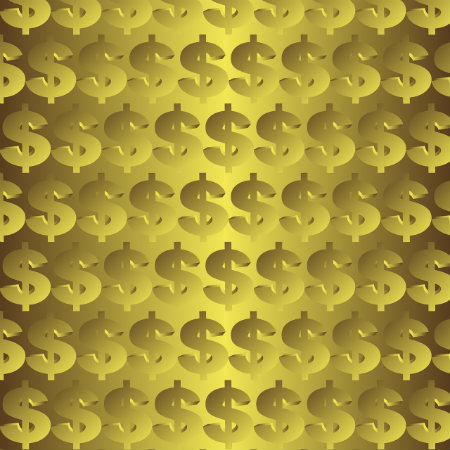 Bad credit loans are designed for borrowers who have made financial mistakes in the past. These loans are designed for people who do not have perfect credit. However, if your credit score is quite low, you might not even qualify for a bad credit loan. If you have just filed for bankruptcy, for example, and need a loan, you may have a hard time securing a bad credit loan, even if you have a job and a way to repay the loan. Also, if your credit score is quite low, the fees and interest rates on bad credit loans can actually be higher than the interest on advance payday loans.
Bad credit loans are designed for borrowers who have made financial mistakes in the past. These loans are designed for people who do not have perfect credit. However, if your credit score is quite low, you might not even qualify for a bad credit loan. If you have just filed for bankruptcy, for example, and need a loan, you may have a hard time securing a bad credit loan, even if you have a job and a way to repay the loan. Also, if your credit score is quite low, the fees and interest rates on bad credit loans can actually be higher than the interest on advance payday loans.
If you have made a few mistakes and bad credit loans are not an option for you, advance payday loans can be one way to get a loan in spite of your credit history. There are no credit checks with advance payday loans, so as long as you have a job and a way of repaying your debt, you likely qualify for advance payday loans. This can make advance payday loans a great option in an emergency.
Bad credit loans are designed for borrowers who have made financial mistakes in the past. These loans are designed for people who do not have perfect credit. However, if your credit score is quite low, you might not even qualify for a bad credit loan. If you have just filed for bankruptcy, for example, and need a loan, you may have a hard time securing a bad credit loan, even if you have a job and a way to repay the loan. Also, if your credit score is quite low, the fees and interest rates on bad credit loans can actually be higher than the interest on advance payday loans.
If you have made a few mistakes and bad credit loans are not an option for you, advance payday loans can be one way to get a loan in spite of your credit history. There are no credit checks with advance payday loans, so as long as you have a job and a way of repaying your debt, you likely qualify for advance payday loans. This can make advance payday loans a great option in an emergency.
It’s easy to blame payday cash loans when borrowers get into trouble. Some borrowers get multiple payday cash loans and face ever-growing interest rates as the amount borrowed and the interest increase. It is true that payday cash loans cost more in interest fees than many loan alternatives. Companies offering payday cash loans charge higher fees because they take larger risks in lending money. And not all companies offering payday cash loans are the same – some unscrupulous companies charge up-front fees or other costs frowned upon by legitimate payday cash loan companies.
In many cases, though, the problem is not necessarily with payday cash loans themselves but with the way they are used. If you are living paycheck to paycheck (or not even making it that far) it can be tempting to get multiple payday cash loans, but if you have no emergency cash fund, it can be very easy to get overwhelmed with debt. Even small loans can be overwhelming (and damaging to your credit) if you can’t afford to pay them. If you’re not sure how to pay off your payday cash loans, there are many places that can help you. Financial counselors and free financial advice is available through many banks and many communities have free talks from financial experts that can be very useful.
It’s easy to blame payday cash loans when borrowers get into trouble. Some borrowers get multiple payday cash loans and face ever-growing interest rates as the amount borrowed and the interest increase. It is true that payday cash loans cost more in interest fees than many loan alternatives. Companies offering payday cash loans charge higher fees because they take larger risks in lending money. And not all companies offering payday cash loans are the same – some unscrupulous companies charge up-front fees or other costs frowned upon by legitimate payday cash loan companies.
In many cases, though, the problem is not necessarily with payday cash loans themselves but with the way they are used. If you are living paycheck to paycheck (or not even making it that far) it can be tempting to get multiple payday cash loans, but if you have no emergency cash fund, it can be very easy to get overwhelmed with debt. Even small loans can be overwhelming (and damaging to your credit) if you can’t afford to pay them. If you’re not sure how to pay off your payday cash loans, there are many places that can help you. Financial counselors and free financial advice is available through many banks and many communities have free talks from financial experts that can be very useful.
Sometimes, a $15000 loan can mean the difference between medical treatment and pain, or the difference between an education or lack of skills for a job. There are simply times when you need to secure a $15000 loan for an important emergency or purchase. However, in order to secure such an amount you usually need to visit a lender or bank. While payday loan companies sometimes offer loans of up to $5000, these companies specialize in smaller, short-term loans. A $15000 is a larger and longer-lasting form of debt.
You have many choices if you need a $15000 loan. Some credit card companies offer balances of $15000, but for this you generally need a very good credit record as well as a good income. Keep in mind, too, that putting a $15000 loan on a credit card (or spreading the debt over a few credit cards) can be a very expensive way to borrow money.
Another option is to get a $15000 line of credit. A line of credit works like a bank account – you can draw money from the amount and even sometimes write checks on the account. Like a credit card, you can pay a minimum amount on your debt or pay off more of it. A line of credit usually has a lower interest rate than a credit card and can be a less expensive way to borrow money.
Another option is to secure a traditional $15000 loan. After you have been approved for this type of loan, the money is transferred into your account by the lender. If you need a $15000 loan, you will want to consider all options – traditional loans, lines of credit, credit cards, and other loan products. Compare loan products to find the most affordable loan that meets your needs.
Category Archives: loan
Deciding When to Use Home Equity
 There has been a lot of talk in recent years about using home equity to finance loans and lines of credit. This shouldn’t come as a surprise, since home equity has both a high value (provided the homeowner has been making payments on their home for long enough) and is easy for lenders to work with since the lien created by a home equity loan is based upon a piece of real estate. These two factors are what enable a number of lenders to offer better interest rates on home equity loans than they might be able to on other types of loans to the same individuals.
There has been a lot of talk in recent years about using home equity to finance loans and lines of credit. This shouldn’t come as a surprise, since home equity has both a high value (provided the homeowner has been making payments on their home for long enough) and is easy for lenders to work with since the lien created by a home equity loan is based upon a piece of real estate. These two factors are what enable a number of lenders to offer better interest rates on home equity loans than they might be able to on other types of loans to the same individuals.
Home equity loans aren’t always the best option, however. You should carefully consider the ramifications before taking out a home equity loan… after all, it’s your house that you’re putting on the line if you aren’t able to repay the loan. This doesn’t mean that you shouldn’t apply for a home equity loan, however; instead, simply take a little time to learn more about home equity lending and use this information to help you to decide whether a home equity loan is right for you.
What Equity Is
Many people aren’t even completely sure what equity is, much less how it’s used as collateral for a loan or a line of credit. Basically, equity is the amount of money that you’ve invested into your house by making your mortgage payments. It’s the percentage of the house that you “own”, and is a representation of how much money has been paid against the total amount owed.
How Home Equity Loans Work
When you apply for a home equity loan, you take out an additional lien against your house or other real estate. This means that you have another claim against your property by a lender, and that if you are unable to repay your debts then the value of your house or real estate will be used to pay off the original mortgage and then the remainder will go toward your secondary lien. Obviously, borrowing against the equity in your house or another piece of real estate reduces the amount of equity in the property… meaning that you have to begin building up your equity all over again.
Home Equity Lines of Credit
Slightly different from a home equity loan is the home equity line of credit. These credit lines work just like credit cards issued by any bank, but they use the equity in your home or real estate as security to guarantee that you’ll repay whatever you charge to the credit line. These lines of credit are a popular alternative to some home equity loans, especially those that would be used from some home improvement projects or multiple purchases or payments.
Home Equity Loan Recommendations
When trying to decide whether or not to use your home equity to secure a loan or line of credit, you should stop and ask yourself if there are other options available. Do you really need the loan or line of credit? Is there any other potential collateral that could be used as security instead of your equity? Will the payments for the new loan be manageable with any other debts that you might have?
By taking the time to consider your alternatives you might find that it’s much easier to make the decision of whether you should use your equity as collateral. The most important thing is to make sure that you can afford to repay what you borrow, since you’re putting a lot up for your collateral.